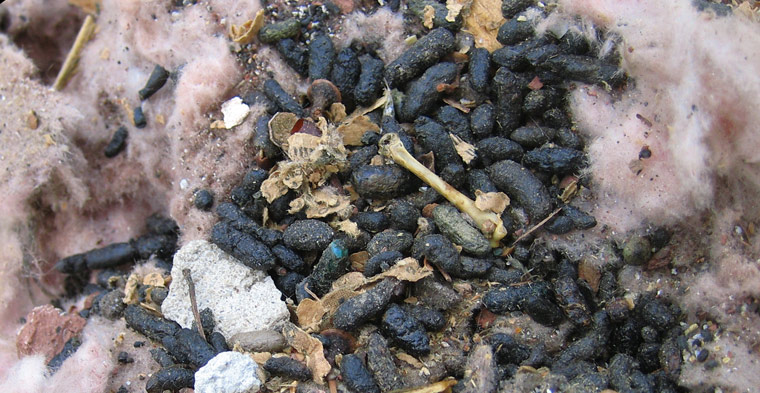-
info@aaanimalcontrol.com
Call us for help in your town
Humane Wildlife Education
How to Clean Wild Animal Waste in Your Attic
Need wildlife removal in your hometown? We service over 500 USA locations! Click here to hire us in your town and check prices - updated for year 2020.
While animals such as squirrels, raccoons, and possums may seem harmless, they can be extremely dangerous to the health of you, your family, and your pets. It is not that you have to worry as much about them attacking you or your family, as much as you have consider the dangers of their waste.

Most wild animals that you will come across carry a great many diseases that can be extremely dangerous. Whether you are talking about parasites, bacteria, viruses, or other kinds of pathogens, there is a lot to be fearful about.
Even after you have gotten these animals out of your home, that does not mean that your problem is resolved. If they have left their waste behind then you are still at risk. In fact, you should expect them to have pockets of waste that are in your home, especially if you find that they have been living in your attic. Because your attic is such a great location for a wild animal to set up as its own residence, it is not uncommon to find a nest of some kind there. This means that you are going to find waste areas as well. So how do you clean wild animal waste in your attic? Here is what you need to do.
First, you have to protect yourself. This means making sure that you have on thicker gloves, like dish-washing gloves, goggles, a surgical mask, boots, and all your skin is covered. Often, the pathogens in this waste can become airborne as the waste dries, and your cleaning can cause it to do so. This can be extremely dangerous to you, so covering your skin can make sure that a parasite does not burrow into your skin or enter your respiratory system through your mouth or nose.
Start by throwing away all items that are disposable. This may mean that you have to throw away sections of insulation or even memorabilia that are in your attic. However, if they have the waste on them, cleaning them may not be enough to kill the bacteria and other pathogens. It pays to be safe and get rid of them.
If you have a shop vac or a vacuum that has a canister instead of using a bag, then this is preferable. You want to vacuum up the waste, but using one of these kinds of vacuums should keep the waste from going right back into the air.
After you have vacuumed, the next step is to clean the areas where the waste is located. Using a product like ammonia, bleach, or a product specifically designed to clean animal waste, you must scrub the wood and other materials thoroughly. You should actually do this a few times. After one cleaning, let it dry and then perform the cleaning again. This will make sure that the area is cleaned as well as possible and ensures that you and your family will be safe. Take these steps and you should be fine.
For more information, you may want to click on one of these guides that I wrote:
How To Guide: Who should I hire? - What questions to ask, to look for, who NOT to hire.
How To Guide: do it yourself! - Advice on saving money by doing wildlife removal yourself.
Guide: How much does wildlife removal cost? - Analysis of wildlife control prices.
Animals in the attic - read about the common species.
Noises in the attic - how to identify critters by their sounds.


















